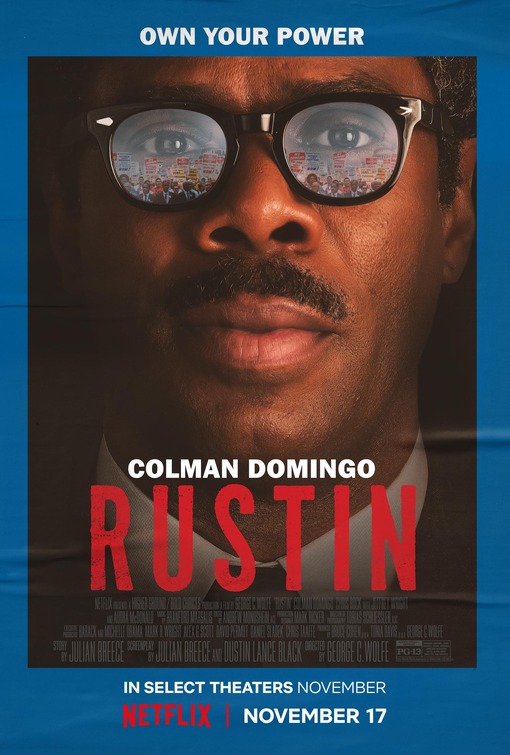
⭐⭐⭐
Rating: 3 out of 5.“Who the heck is Rustin?”
Initially, the title had me scratching my head. However, I soon discovered that this is a biography of Bayard Rustin, a seldom acknowledged but pivotal figure in the American civil rights movement. His most significant achievement was orchestrating the 1963 March on Washington for Jobs and Freedom, a landmark event in the fight for human rights in the United States. Despite the obstacles he faced due to his sexual orientation and past affiliations with pacifist groups, Rustin collaborated closely with Martin Luther King Jr. to plan the historic demonstration, culminating in King’s unforgettable “I Have a Dream” speech.
One of the main reasons to see Rustin is the outstanding performance of Colman Domingo in the lead role. His presence is the highlight of this rather routine biopic. Domingo started in the theater and gained recognition with multiple roles in the Broadway production of Passing Strange in 2008. He’s since made notable contributions to features such as Ma Rainey’s Black Bottom (2020), Zola (2020) and The Color Purple (2023). His portrayal of Bayard Rustin is likewise compelling and skillfully captures the charisma of a real-life leader. The movie, directed by George C. Wolfe and written by Julian Breece and Dustin Lance Black, dutifully alternates between Rustin’s planning efforts and the challenges his gay identity posed.
The Academy Awards still matter. When the Oscar nominations were announced on January 23rd, I had seen every picture cited in all the acting categories but one. I likely would have never seen this had Colman Domingo not clinched a well-deserved Best Actor nomination for his work. The chronicle adheres closely to traditional conventions, with predictable narrative arcs and tropes guiding its storytelling. A socially conscious, by-the-numbers historical drama wasn’t high on my list of films to watch. Yet the narrative brought this forgotten leader with competent professionalism to my attention. It effectively justifies its existence as a valuable document of a key architect in the campaign for racial equality. Teachers should find it a useful asset for exploring the ideological landscape of the 1960s in their classrooms. Rustin’s commitment to nonviolent activism and contributions to the March on Washington, bolstered by Domingo’s exhibition, make his legacy worth experiencing.
01-25-24


One Response
A great performance from an ok movie. 3 stars ⭐️